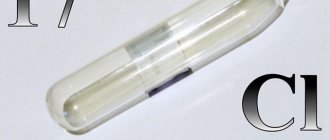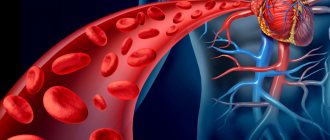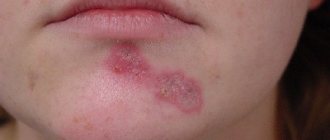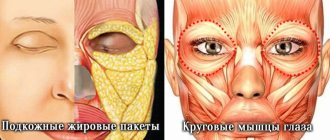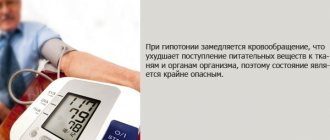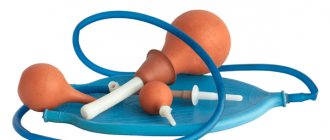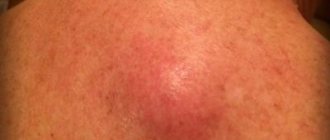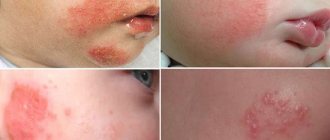Alcoholic drinks are in very high demand among the domestic population. We drink alcohol in cafes, bars and restaurants, bring it home and drink it at family celebrations, take alcohol with us when going out of town, etc. This product is very popular, but at the same time it poses a threat to your health; we ourselves consume poison, which gradually kills us. Some people do this carefully and in small doses, while others drink a lot and get alcohol poisoning, which has a very bad effect on their well-being and health in general.
In fact, alcohol poisoning is more than common. If you do not follow the dosage and get carried away with alcoholic beverages, then you can drive your body into a crisis situation and it will be quite difficult to get out of it. Your body always produces alcohol in your stomach after eating any food. Naturally, alcohol in the body can increase to 0.4 ppm; this figure is considered normal and does not pose any threat to your health.
If a large amount of alcohol enters the body, which is always filled with alcohol, then the liver simply cannot cope with its work and does not have time to cleanse the blood. The blood alcohol level rises, you feel sick, you suffer for more than one day and think about what medications can help in this situation.
If you feel sick in the morning from alcohol: what to do
Quickly go to the pharmacy and buy sorbex and betargin. Drink 3 sorbex tablets, then dilute 1 ampoule of betargin (drinking ampoule) in half a glass of water at room temperature and drink too. Afterward, drink highly carbonated water. All symptoms will disappear in 2-3 hours. I checked it myself))
Well, the most ancient way
Symptoms of alcohol poisoning:
- Disturbance of the gastrointestinal tract: profuse vomiting, diarrhea, cramping abdominal pain, hypersalivation;
- Loss of coordination of movements, accompanied by headache, severe dizziness;
- Damage to the blood vessels of the sclera of the eye: lacrimation, redness of the eyes, painful reaction to light;
- Chills, tremors of extremities, difficulty breathing;
- Increased blood pressure, rapid pulse.
- Loss of consciousness;
- Involuntary urination or defecation;
- Muffled heart sounds, severe bradycardia;
- Blueness of the skin, coldness of the extremities due to disruption of the functioning of the heart and normal blood flow.
Alcohol intoxication is sometimes confused with banal alcohol intoxication, which is most often explained by people’s lack of awareness of the difference between them.
Signs of alcohol intoxication:
- Feeling of euphoria, liberation;
- Impaired coordination of movements;
- Speech becomes slurred, fast, loud;
- A person under the influence of alcohol increases his physical and mental capabilities, gets involved in conflicts and discussions;
- A sparkle appears in the eyes;
- The sense of proportion is dulled.
Intoxication is a mild form of intoxication, which usually ends with a hangover and headache, but also causes enormous harm to health due to the death of nerve cells.
Acute alcohol poisoning is a serious threat to human life and therefore requires immediate treatment.
Treatment of alcohol intoxication is aimed at removing the toxic substance from the body, normalizing blood pressure, pulse rate and respiration.
Degrees of alcohol intoxication
There are several degrees of alcohol poisoning:
- The first degree is characterized by the presence of 0.3% to 1% ethanol in the body. A person experiences euphoria, concentration decreases, speech is impaired and becomes slow.
- The second degree is caused by the presence of ethanol in the body from 1% to 1.5%. A person becomes inhibited or, conversely, excited, coordination of movements is impaired, and the reaction to stimuli decreases.
- The third (medium) degree is characterized by the presence of ethanol in the body in an amount of 1.5% to 2.2%. A person develops dizziness, he does not orient himself in space, his speech is impaired, and he sees double.
- The fourth degree of severity is determined by the presence of ethyl alcohol in an amount of 2.2% to 3%. The person cannot move or stand, urinary incontinence develops, and there are no reactions to stimuli.
- The fifth acute degree, in which ethanol is present in the blood from 3% to 4%. In this case, there are no reflexes, breathing and blood circulation are impaired, and coma may occur.
- The sixth severe degree, in which more than 4% ethyl alcohol is observed in the blood. In this case, respiratory paralysis and death occur.
Typically, signs of alcohol poisoning in people are diagnosed from the first to the third degree; fourth degree poisoning is rarely observed. This is due to age, individual characteristics of the body, and the presence of pathologies.
Alcohol poisoning: treatment at home using traditional methods
Alcohol poisoning, treated at home using well-known folk methods, allows you to avoid the dangerous consequences of the toxic effects of the components of ethyl alcohol on the body. If you suspect alcohol poisoning, you should not put the victim to sleep, because in a dream a person can die from asphyxia by vomit, from cardiac or respiratory arrest.
What to do in case of alcohol poisoning:
- Force the victim to drink at least a liter of clean water with the addition of 1 tablespoon of table salt, then press with your fingers or a spoon on the root of the tongue, thus inducing vomiting. These activities can be stopped only after vomiting is represented only by clean water. This way you will help the victim get rid of toxins, which will significantly alleviate his condition;
- If the poisoned person has severe chills, you can warm him up with a light blanket or blanket;
- If a person is unconscious, it is worth turning him on his side to prevent inhalation of vomit and tongue retraction;
- Call an ambulance.
When alcohol poisoning occurs, the body loses water, so you need to replenish your water balance.
What to drink to prevent dehydration:
- Warm tea with lemon. It is undesirable to drink coffee, because caffeine leads to a narrowing of the lumen of blood vessels, which aggravates the process of intoxication;
- Mineral water;
- Brine (this drink has a high concentration of salt);
- Milk.
Treatment after alcohol poisoning is aimed at restoring normal vital functions of the body. You cannot “treat yourself” with low-alcohol drinks. For several days, it is advisable for the victim to sleep a lot, drink plenty of fluids and saline solutions (normohydron, rehydron). To completely remove toxins, you can use adsorbent preparations: activated carbon, smecta, enterosgel.
Therapy
Alcohol poisoning requires immediate treatment using a course of rehabilitation; the victim is provided with assistance for rapid recovery, return of physical and mental health. The rehabilitation course goes through three stages:
- Normalization of acid-base balance;
- Restoring the functionality of vital organs;
- Normalization of the activity of the central nervous system and peripheral nervous system.
In case of alcohol poisoning in the initial stages, it will be sufficient to cleanse the body of ethanol breakdown products and eliminate alcohol.
In case of severe intoxication, treatment is carried out using special drugs that are administered intravenously. Good nutrition, complete abstinence from alcohol, and the use of vitamin-mineral complexes and phospholipids are important.
First aid for alcohol poisoning, algorithm of actions
First aid for alcohol poisoning can be provided independently. To do this you will need: clean water, table salt, soda, activated carbon.
In case of alcohol poisoning, you need to follow the algorithm:
- Remove a toxic substance from the body. To do this, induce vomiting by pressing on the root of the tongue with your fingers or a spoon;
- To disinfect the stomach and slow down the absorption of alcoholic products, it is worth giving the victim a saline solution (add 1 tablespoon of table salt and ½ teaspoon of soda per liter of water);
- Adsorb the remains of the toxic component. To do this, you should drink activated carbon at the rate of 1 tablet per 10 kg of body weight;
- For severe headaches, apply a compress of damp cloth to the back of the head and ventilate the room well;
- After the activities have been completed, calm down and put the alcohol victim to sleep.
Health care
Before hospitalization the following is performed:
- breathing control. To ensure ventilation of the lungs, the oral cavity is cleared of vomit, and the tongue is fixed with a holder. It is possible to use an airway; in case of coma, intubation is necessary;
- gastric lavage. If the patient is unconscious, it is performed through a probe;
- maintenance therapy. Intravenous administration of glucose solution, vitamins, insulin or other drugs - the set is determined by the patient’s condition;
- symptomatic treatment. Relieving pain, restoring normal breathing, lowering blood pressure, etc.;
- if the body temperature is low, the person freezes - warming up (with heating pads).
After providing primary care for acute ethanol poisoning, doctors at the NarcoDoc clinic recommend hospitalization in a hospital. In the clinic, they continue to monitor the patient’s condition, treat him, and relieve possible complications of intoxication.
Contact our specialists for treatment of alcoholism followed by rehabilitation, call: +7
Poisoning with alcohol surrogates, how to recognize low-quality alcohol
Poisoning with alcohol substitutes is common, so you should be especially careful when choosing alcoholic beverages. For food purposes, it is relatively safe for humans to consume alcohol made from ethyl alcohol. “Underground” drinks are made from industrial alcohol (methyl alcohol), which cannot be processed by the human liver due to the lack of an enzyme that breaks it down.
It is impossible to treat poisoning with surrogate alcohol at home, so if you suspect intoxication with “scorched” alcohol, you must call an ambulance.
How to recognize low-quality alcohol:
- A good drink cannot be cheap, so there is no need to buy alcohol online or on special offer;
- A factory bottle must have excise taxes;
- If you feel that you are getting drunk very quickly when drinking a questionable alcoholic drink, urgently rinse your stomach and call an ambulance;
- It is difficult to distinguish low-quality alcohol by taste, but methyl alcohol gives off a sharp alcoholic smell. Cognac, whiskey and quality wines do not smell of alcohol.
Treatment of intoxication in the clinic
A person with euphoria does not necessarily experience intoxication after drinking alcohol. Violation occurs only after drinking a lot of drink. Alcohol intoxication symptoms and treatment are not always applicable at home. Then there is an option to go to the clinic.
It is difficult to restore human health, so the attention and consultation of doctors in the case of this disease will not be superfluous. You can only do something yourself at first. If the discomfort does not subside within an hour, you need to call a first aid ambulance. Medical workers are ready to see the patient around the clock and begin treating alcohol poisoning.
Alcohol poisoning pills, how they work
Tablets for alcohol poisoning are divided into groups according to their ability to eliminate the symptoms of alcohol intoxication:
- Adsorbing agents such as activated carbon, smecta, polysorb have enveloping and adsorbing properties, which helps eliminate discomfort from the gastrointestinal tract. Such medicines are sold without a doctor’s prescription, are found in almost every home, and do not have a harmful effect on the body;
- An anti-nausea remedy is validol. Its effect is due to the high concentration of menthol, which has an inhibitory effect on the vomiting center in the brain. There are other antiemetic drugs (metoclopramide, cerucal), but they can only be purchased with a doctor's prescription;
- Painkillers are necessary for victims of alcohol intoxication due to the development of severe headaches. Aspirin upsa (a soluble effervescent tablet) is best suited for this purpose. However, this drug is contraindicated for people suffering from gastric ulcers;
- Complex antioxidants for ethyl alcohol poisoning: zorex (is an antioxidant, hepatorotector, promotes rapid excretion of ethyl alcohol products in the urine); biotredin.
Possible consequences
The worst thing, of course, is death. Other complications of poisoning include:
- acute alcoholic hepatitis;
- liver or kidney failure;
- active inflammation of the pancreas;
- delirium;
- spontaneous cardiac arrest;
- nosocomial pneumonia;
- toxic cardiomyopathy;
- withdrawal syndrome;
- blindness;
- cerebral edema;
- polyvisceropathy;
- hypovolemic shock;
- cirrhosis of the liver;
- disturbance of water-electrolyte or alkaline balance in the form of hyperkalemia, acidosis, alkalosis.
In the future, during the examination of the patient, a vitamin imbalance can also be detected, which will affect the metabolism and DNA synthesis of cells.
Vodka poisoning, how not to get poisoned during a celebration
Vodka poisoning most often occurs due to a person’s lack of sense of proportion. The amount of vodka that can cause alcohol intoxication varies from person to person, so it is better to adhere to the following rule: drink 50 grams of vodka per hour. This way you can avoid a hangover in the morning, and at the party you will be cheerful and at the same time remain in adequate condition.
It is easier to get poisoned with cognac than with other alcoholic drinks, because high-quality cognac contains a small amount of methyl alcohol, which is extremely toxic to the human body. It is not advisable to consume such a drink in an evening in quantities exceeding 100 grams.
To avoid poisoning from wine, you should not mix this low-proof drink with others (vodka, beer, champagne). At a table with a lot of fruits and meat dishes, you can allow yourself about 300 grams of this noble drink and not worry about the consequences.
To be poisoned by low-quality alcohol, 50 grams will be enough. If you are not sure of the quality of an alcoholic drink, it is better not to drink it at all.
Prevention
For the purpose of prevention, it is recommended to adhere to several rules:
- Do not drink alcohol on an empty stomach;
- Eat a piece of butter while drinking alcohol. Drink vitamins;
- Do not mix alcohol of different strengths, do not reduce the strength of drinks;
- Do not drink alcoholic drinks with soda;
- No smoking;
- Ventilate the room;
- You can take medications that reduce or prevent intoxication.
These recommendations will help you cope with alcohol poisoning; it will not lead to negative consequences. But doctors recommend not to abuse alcohol.
What to drink if you have alcohol poisoning to feel better
What to drink if you have alcohol poisoning to quickly recover from severe intoxication:
- Enterosgel is an adsorbent drug that binds toxic complexes of ethyl alcohol products and naturally removes them from the body. This product also has enveloping and anti-inflammatory properties on the stomach wall irritated by alcohol toxins;
- Regidron is a drug that restores the natural water-salt balance of the body. Thirst after drinking excess alcohol is caused by dehydration, which leads to alcohol consumption. Rehydron is available in powder form, which is diluted in a liter of clean water. A person who has been poisoned by alcohol should drink a rehydron solution within several hours after the first symptoms of intoxication appear.
Diagnostics
Diagnostic measures for alcohol intoxication or taking surrogate products include:
- collecting medical history data;
- studying the clinical picture of poisoning;
- conducting a series of additional studies, including chemical and toxicological analysis of the received liquid and other biological material.
In typical cases of intoxication, making the correct diagnosis is not difficult. It should be taken into account that alcohol poisoning can mask or provoke the development of comatose states of a different nature of origin.
Particular difficulties arise when a somatic or drug-induced coma develops against the background of alcohol intoxication, for example, with hypoglycemia. The combined use of alcohol and barbiturates also leads to serious consequences.
In these cases, prompt chemical analysis of biological fluids of the body helps to correctly diagnose the cause of the patient’s comatose state and provide timely assistance.
A video from an Aston Martin user explains the effects of alcohol poisoning on the body.
Vomiting due to alcohol poisoning: why it occurs, how to stop it
Vomiting in case of alcohol poisoning is a natural protective reaction of the body aimed at cleansing the body of a toxic substance. Vomiting undigested food and alcohol should not cause you any concern. To speed up the process of cleansing the stomach, you should drink 0.5-1 liter of water with salt. If the vomiting becomes mucous, bitter and does not stop for a long time, you should contact a specialized medical institution for emergency assistance. Vomiting bile indicates that alcohol consumption has disrupted the functioning of the liver and bile ducts.
How to stop vomiting in case of poisoning:
- Wash with cold water, go out into the fresh air;
- Drink an enveloping agent such as enterosgel or smecta;
- Place a validol tablet under your tongue;
- Drink warm tea with lemon or milk.
If the above measures do not help, you should seek specialized help at the hospital.
Toxic dose of alcohol
The WHO organization presented impressive and scary figures - approximately 60% of men in Russia aged 15 to 60 years die from intoxication with surrogates, which sharply reduces the age of survival of men before retirement in the country to 59 years instead of 75, as, for example, in the UK. Ethanol is a toxic substance, and poisoning with alcohol and its surrogates depends on the individual reaction of the body. A lethal dose for any person is considered to be three bottles of cognac consumed less than 5 hours apart.
At the same time, doctors stipulate that for counterfeit drugs, the lethal dose may not exceed one sip, depending on the concentration of toxins in the substance that the person drinks. Paradoxically, excessive snacking can lead to death, since the body does not have time to cope with the incoming food that accumulates in the gastrointestinal tract, and alcohol is simply not absorbed at first, but then enters the blood in huge quantities, which can lead to death.
Remedy for alcohol poisoning: traditional methods of treatment
After a successful holiday, many are looking for the ideal remedy for alcohol poisoning. Of course, the best cure for this disease is a sober lifestyle. But there are some simple folk recipes that can relieve headaches, relieve nausea and weakness after a feast.
Traditional recipes for hangovers:
- Drink 1 - 1.5 liters of cucumber pickle in the morning on an empty stomach, which will restore the salt balance in the body, start the digestive system, and relieve headaches;
- Drink a raw egg, after shaking it with a few drops of vinegar and a pinch of salt;
- Prepare black tea with milk and sugar. Milk will relieve stomach pain and the urge to vomit, while glucose will launch mental activity and give energy;
- Take a cool shower, but do not wash with too cold water to avoid vasospasm.
It is better not to treat severe alcohol poisoning on your own; perhaps you have come across low-quality alcohol, the intoxication from which can only be eliminated by a specialist.
Rehydration of the body
Rehydration therapy is carried out for a person who experiences excessive frequent vomiting and diarrhea due to alcohol poisoning. The main principle of rehydration is to replenish the volume of lost fluid and restore the mineral-salt balance.
In case of mild intoxication and vomiting no more than 5-7 times a day, saline solutions are prescribed orally, but if the patient suffers from uncontrollable vomiting and signs of dehydration are observed, then rehydration solutions are infused intravenously.
Regidron
Symptoms of alcohol poisoning are most often expressed in the form of uncontrollable vomiting, so it is extremely important to prevent the development of dehydration. The drug Regidron contains mineral salts and components that are part of the blood and plasma, the use of which helps prevent dehydration of the body.
Regidron is available in powder form for preparing a saline solution and then taking it orally. For frequent vomiting or diarrhea, take 1-2 sips of the prepared Regidron solution every 5 minutes. It is not recommended to drink a lot of solution at once, since getting a large amount of liquid into the stomach can provoke a new urge to vomit.
Humana electrolyte
The drug Humana electrolyte is similar in its therapeutic properties to Regidron, but additionally contains glucose. Instructions for preparing the solution are described in detail on the packaging.
You can prepare a solution for rehydration with your own hands; to do this, add half a teaspoon of salt, half a teaspoon of baking soda and 2 tablespoons of sugar to 1 liter of warm boiled water, mix thoroughly and take a small sip orally. The price of such a solution is much lower than that of pharmaceutical preparations, and the ingredients for its preparation can be found in every home.
With severe alcohol intoxication and signs of dehydration with oral solutions, it is difficult to bring the patient back to normal, so droppers are prescribed. As a rule, solutions for intravenous infusion are physiological sodium chloride solution or 5% glucose solution with the addition of B vitamins or ascorbic acid.
You can also buy a ready-made pharmaceutical solution for droppers:
- Disol;
- Trisol;
- Hemodez.
For concomitant complications of the heart and blood vessels against the background of severe alcohol poisoning, Panangin, cardiac glycosides, and magnesia are added to the IV solutions.
Solutions for dropper photo
Methyl alcohol poisoning: how to recognize and treat
Poisoning with methyl alcohol is very dangerous, since, unlike ethyl alcohol, methyl alcohol is a purely technical liquid, which, when consumed by a person, is converted into formic acid, which can destroy almost all organs and tissues of the body.
In appearance, color and smell, ethyl and methyl alcohols are almost identical, so it is almost impossible to distinguish them. To protect yourself from drinking industrial alcohol, you should purchase only high-quality alcoholic beverages in specialized stores.
Signs of poisoning:
- Acute abdominal pain, diarrhea and vomiting;
- Flashing of flies before the eyes, short-term loss of vision;
- Rapid intoxication, aggression, which are sharply replaced by weakness, apathy and drowsiness.
- Increased heart rate, sharp drop in blood pressure;
- Excessive drooling;
- Loss of consciousness.
If you notice the following symptoms, you should take immediate action:
- Call an ambulance;
- Rinse the stomach with saline solution or clean water;
- Drink activated carbon.
Complications of alcohol poisoning
The most common complication is a disorder of consciousness and functionality of vital organs and systems. Often, loss of consciousness results in coma.
Other complications include:
- Recession of the tongue, resulting in impaired breathing;
- Ingestion of mouth matter into the respiratory system, development of trismus of the masticatory muscles;
- Acute kidney failure.
In medicine, it is customary to distinguish three stages of alcoholic coma:
- Superficial coma is characterized by a reaction to light and the smell of ammonia. To recover from a coma, gastric lavage is performed. A probe is used for this.
- Moderate severity is caused by relaxation of all muscles, there is no reaction to ammonia, consciousness does not return after gastric lavage. To recover from a coma, medications are administered in a hospital setting, which cleanse the body of harmful substances.
- A deep coma is caused by a lack of reflexes and a lack of reaction to any irritants; a person experiences convulsions. This condition is extremely dangerous and requires immediate treatment in the toxicology department.
Ethyl alcohol poisoning
Ethyl alcohol poisoning is nothing more than banal alcohol poisoning. Intoxication can develop due to excessive consumption of alcohol or due to individual intolerance to alcohol by a certain person.
How to avoid ethanol poisoning:
- If you drink alcohol, you should eat it with fatty fish or meat dishes and vegetable salads, which will allow ethyl alcohol to be absorbed more slowly;
- Do not drink alcohol with carbonated drinks;
- Do not mix different types of alcoholic beverages (for example, champagne and vodka);
- Don't drink alcohol if you know you have an intolerance.
Acute alcohol poisoning can be fatal, so do not think that uncontrollable vomiting, spasmodic headache or loss of consciousness is not a reason to see a doctor. You can try to eliminate unpleasant symptoms at home, but if there is no proper result, a visit to the doctor will not hurt you.
Signs of ethyl alcohol poisoning:
- severe vomiting, abdominal pain, diarrhea, drooling and watery eyes;
- severe loss of coordination of movements;
- memory loss;
- involuntary urination and defecation;
- the appearance of seizures;
- difficulty breathing;
- loss of vision, flickering of spots before the eyes;
- a sharp drop in blood pressure;
- loss of consciousness.
Symptoms and signs of poisoning in the early stages
Early symptoms of alcohol poisoning include behavior disorder and changes in a person's appearance. Such changes include:
- Emotional excitement, development of euphoria;
- Reassessment of capabilities;
- There is a desire to talk;
- Facial redness;
- Pupil dilation.
Even with a small amount of alcohol consumed, this condition can occur. These symptoms are usually not cause for concern. Secondary signs of alcohol poisoning then develop. There is a dysfunction of the brain and the entire nervous system. Secondary signs include:
- Transition to the level of instincts;
- Development of aggressiveness;
- Decrease in intelligence level;
- Impaired coordination of movements;
- Loud speech;
- Decreased body temperature and pulse.
Symptoms of alcohol poisoning are clear. Signs of intoxication develop gradually, and over time they begin to intensify.
Poisoning with ammonia
Poisoning with ammonia is quite rare, since ammonia is most often used in medical practice.
Ammonia is an irritating substance that is used to revive a patient who is losing consciousness. The pungent ammonia smell irritates the human nervous system, which brings him out of unconsciousness.
Typically, ammonia poisoning develops through prolonged inhalation of its vapors and is manifested by the following symptoms:
- burning in the throat, dry, severe cough;
- dizziness, disorientation in space;
- dry mucous membranes;
- lacrimation;
- nausea, profuse vomiting;
- loss of consciousness;
- double vision, short-term loss of vision;
- hallucinations;
- hot flashes, increased sweating.
Help for ammonia poisoning:
- take the victim out into the fresh air or open the windows in the room;
- stop human contact with the toxic substance;
- wash with cool water, rinse your mouth and nose with water;
- If the victim's condition is serious, call an ambulance.
It is strictly forbidden to take ammonia orally, as it destroys the walls of the stomach and destroys cells of the liver, kidneys, and circulatory system.
If ammonia gets inside, you need to:
- urgently call a doctor;
- induce vomiting in the victim by drinking plenty of clean water;
- Give the patient a tablespoon of lemon juice.
Signs of acute and severe alcohol poisoning
In the acute form, nausea and vomiting develop, speech impairment, coordination of movements, orientation in space, hearing impairment, the person does not respond to most stimuli, involuntary urination or defecation occurs, the pulse quickens and is difficult to palpate.
With severe intoxication of the body with alcohol, the functionality of all vital organs and systems is disrupted. A person may fall into an alcoholic coma, and foam often flows from the mouth. The consequences of alcohol poisoning are dangerous; if emergency assistance is not provided to him in a timely manner, he will die.
How to deal with a hangover?
Often a person learns that the body has been poisoned by alcoholic beverages the next morning - the head is splitting, severe thirst and dry mouth are tormented, blood pressure rises, nausea and vomiting plague. Thus, the body tries to cleanse itself of toxic substances and your task is to help it with this.
First aid for a hangover consists of the following measures:
- drinking large amounts of liquid - still mineral water, acidified tea or compote, green tea;
- take an Aspirin tablet - in this situation, the use of the drug is advisable, it will help relieve headaches;
- take sorbents - remember that drugs of this group cannot be taken simultaneously with medications, since the effect of the latter will be reduced;
- provide access to cool fresh air.
Attention! It is strictly not recommended to treat a hangover by consuming a new dose of alcohol, as the patient may gradually develop alcoholism or develop liver and kidney damage.
Pharmacy medications for hangover syndrome
Hangover cures
Special pharmaceutical preparations will help reduce the severity of clinical symptoms of alcohol intoxication and hangover syndrome:
- Alka-Seltzer;
- Glycine;
- Metadoxine;
- Zorex;
- Medichronal.
These products contain glucose and amino acids, which have a beneficial effect on the functioning of the nervous system and brain.
Traditional treatment of alcohol poisoning
Traditional medicine recipes will help reduce the severity of intoxication in the body due to alcohol abuse or consumption of low-quality surrogate booze:
- cucumber or tomato pickle;
- tomato juice;
- fresh orange diluted 1:1 with lemon juice;
- drink with mint, ginger root, honey and lemon juice.
It is not recommended to drink strong black coffee or tea. Despite the fact that these drinks are indeed invigorating, in combination with alcohol intoxication they cause additional stress on the cardiovascular system.
In the video in this article, a specialist explains how to deal with hangover syndrome at home and what recipes best help reduce discomfort after drinking alcohol.
